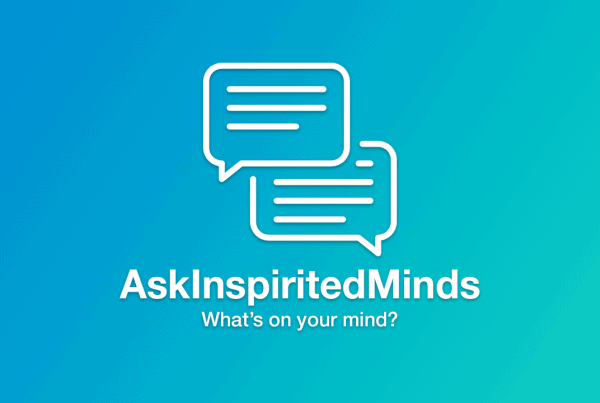Question
If you act bad or sin as a result of your mental health issues will you be punished for it?
I have suffered with low self esteem confidence self worth as far as I can remember and it’s made me do haram things to get some sort of comfort or cope. I know we all have a choice but if you suffer with childhood trauma and issues that you obviously didn’t choose and these shape and affect every aspect of your life it almost feels unfair to me that we should be punished and held accountable for this? Such thoughts make me resent religion and I don’t want to I want to love Allah and be grateful but I just can’t help like it’s all just not fair :(
~
Response
As-Salaamun ‘Alaikum – peace be with you,
Thank you for reaching out to us. We know that it isn’t easy and we appreciate the confidence you have placed in us. May you be rewarded, Ameen.
To begin to answer your question, we can turn to a verse from the Qur’an:
“And if Allah were to impose blame on the people for their wrongdoing, He would not have left upon it [i.e., the earth] any creature, but He defers them for a specified term. And when their time has come, they will not remain behind an hour, nor will they precede [it].” [Qur’an 16:61]
This verse teaches us that time is a mercy of Allah (SWT) – He could bring us to account here and now for our deeds but He has bestowed us with the blessing of time so that we may take heed and change our ways, so that we remain steadfast to the path of Allah (SWT). As the verse addresses, every mortal creature has sinned and wronged their Nafs (soul), however, the fact that we are bestowed the ability and opportunity to reflect on our actions and sincerely repent now, is a blessing which we should be thankful for and take advantage of.
You can be forgiven and be freed from both guilt and punishment through sincere repentance and effort not to repeat those misdeeds. Allah (SWT) promises:
“Say, ‘O My servants who have transgressed against themselves [by sinning], do not despair of the mercy of Allah. Indeed, Allah forgives all sins. Indeed, it is He who is the Forgiving, the Merciful’.” [Qur’an 39:53]
It is important to acknowledge that this life is a test and the Qur’an, through addressing the unparalleled experiences of the Prophet Muhammad (ﷺ), acknowledges the trials & trauma that can burden the hearts of believers. One example of this can be found in Surah ad-Duha (”the Morning Brightness”), a source of solace and hope in times of difficulty. This chapter of the Qur’an was revealed to the Prophet Muhammad (ﷺ) when even he, an exemplary character, felt despair. Through this chapter, Allah (SWT) directly comforts and reassures:
“Your Lord has not taken leave of you, [O Muḥammad], nor has He detested [you]. And the Hereafter is better for you than the first [life].” [Qur’an 93:3-4]
This specific verse reminds the believer about the perspective Muslims should adopt on life – to note that life truly begins in the Akhirah (”the eternal Hereafter”). Perspective-shifting in this manner allows us to re-think our negative experiences – this is key especially when directly addressing past trauma. Later verses in the Qur’an offer emotional relief again, by portraying the blessings and mercy of time. From observing the cyclicality found in both nature and celestial bodies, i.e. the breaking of dawn and approaching of dusk, the rising and setting of the sun and the moon, we can draw similarities to the ups and downs of our life. However, the believer who strives against his Nafs in both good and bad times, purely for the sake of Allah (SWT) and His pleasure, is repeatedly promised His love and reward in this life and, more importantly the next.
Part of being a Muslim is to fully submit to Allah (SWT), who blessed us with life itself and sustains us through every breath we take. Believers are faced with trials, which can include difficult experiences, physical health conditions and mental health issues. Allah (SWT) explains the reasons for this:
“And We will surely test you with something of fear and hunger and a loss of wealth and lives and fruits, but give good tidings to the patient. Who, when disaster strikes them, say, “Indeed we belong to Allah, and indeed to Him we will return. Those are the ones upon whom are blessings from their Lord and mercy. And it is those who are the [rightly] guided. ” [Qur’an 2:155-157]
“Do the people think that they will be left to say, “We believe” and they will not be tried? But We have certainly tried those before them, and Allah will surely make evident those who are truthful, and He will surely make evident the liars.” [Qur’an 29:2-3]
The Qur’an directly links Iman (faith) to Amal-us-Salihaat (good deeds), encouraging us to be proactive and productive in demonstrating faith inwardly and outwardly. Therefore, we should seek out help via permissible avenues to address our moral weaknesses and traumatic experiences so that we can constantly improve in preparation for the Hereafter – which is ultimately the purpose of this life. We may not have chosen to endure the negative experiences, but we can choose whether we allow them effect us or whether we use those experiences to get closer to Allah (SWT), and help others who have endured similar or worse experiences. One does not have to do this alone, Allah (SWT) is Al-Shafi (The Healer) and we should seek out this Shifa for our bodies, hearts and minds.
For self-help – the Holy Qur’an is, as discussed, the ultimate reminder of gratitude and perspective-shifting. Reciting it regularly in Arabic and reflecting upon the meaning of its verses in English offers constant reminders for our end goal, allowing us to keep our thoughts & deeds on track. Its reminders humble us before Allah (SWT) and allows us to recall the constant blessings we benefit from every second, healing our mind and soul.
Regularly engaging in Dhikr (remembrance of Allah (SWT)), i.e. reciting and reflecting upon the phrase “Astaghfirullah” (I seek Allah (SWT’s) forgiveness) sincerely from the heart, is a way to repent for past sins and alleviate feelings of guilt.
Finally, performing the 5 obligatory prayers in a timely manner is central to a Muslim’s life:
“Recite, [O Muḥammad], what has been revealed to you of the Book and establish prayer. Indeed, prayer prohibits immorality and wrongdoing, and the remembrance of Allah is greater. And Allah knows that which you do.” [Qur’an 29:45]
While we may struggle with doing this, we must ensure that we never give up & supplicate to Allah (SWT) that He allows us to improve. It is imperative that we acknowledge life is a journey of struggle but this should be simultaneously accompanied with self-growth towards Allah (SWT), and He is Fully Aware of our efforts.
These are just some humble suggestions. We sincerely hope and pray that one or more of them will be suitable to your circumstances and help create ease for you, In Shaa Allah (if Allah wills). If you would like to discuss anything else on your mind, we also offer more personalised counselling here at Inspirited Minds.
Please don’t hesitate to contact us if you need any further support.
Allah knows best and we hope this helps In Shaa Allah (if Allah wills),
Duas (supplication) always,
IM Support Team
~
Ask Inspirited Minds is a safe, anonymous and confidential space for you to ask specific questions or seek advice around your mental health and wellbeing. We will publish your question and our response on our website but will make sure to make it anonymous and change any identifiable details. If you are going through these problems, then it’s highly likely someone else is going through something similar and we hope our advice can also be of help to others in a similar situation.
Click the link below to send us your question


